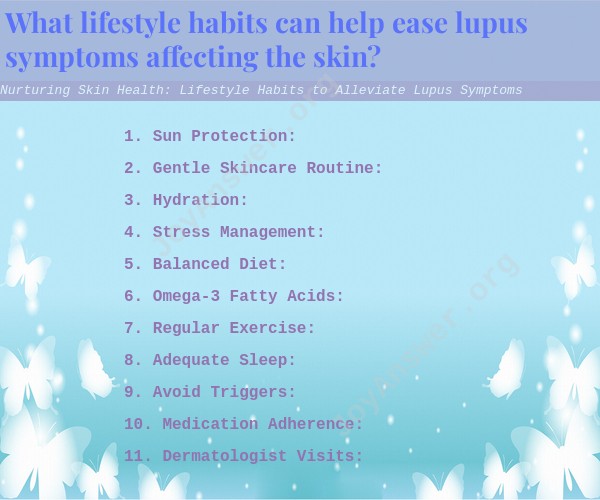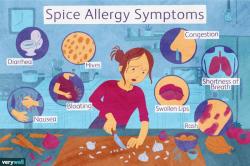What lifestyle habits can help ease lupus symptoms affecting the skin?
Nurturing skin health is essential for individuals with lupus, an autoimmune condition that can affect various parts of the body, including the skin. While lifestyle habits may not cure lupus, they can help alleviate skin-related symptoms and contribute to overall well-being. Here are some lifestyle habits that individuals with lupus can adopt to support skin health and manage symptoms:
1. Sun Protection:
- Sun exposure can trigger or worsen lupus flare-ups. Use broad-spectrum sunscreen with a high SPF, wear protective clothing, and seek shade to minimize UV radiation exposure.
2. Gentle Skincare Routine:
- Use mild, fragrance-free cleansers and moisturizers to avoid irritating the skin. Choose products that are hypoallergenic and formulated for sensitive skin.
3. Hydration:
- Proper hydration helps maintain skin health. Drink plenty of water throughout the day to keep your skin hydrated and promote overall well-being.
4. Stress Management:
- Stress can contribute to lupus flare-ups. Practice relaxation techniques such as deep breathing, meditation, yoga, or mindfulness to manage stress.
5. Balanced Diet:
- Consume a balanced diet rich in fruits, vegetables, whole grains, lean proteins, and healthy fats. Nutrient-rich foods support overall health, including skin health.
6. Omega-3 Fatty Acids:
- Omega-3 fatty acids, found in fatty fish like salmon and flaxseeds, have anti-inflammatory properties that may benefit skin health.
7. Regular Exercise:
- Engage in regular physical activity to improve circulation and overall health. Consult your healthcare provider before starting any exercise regimen.
8. Adequate Sleep:
- Prioritize sleep to support skin healing and reduce inflammation. Aim for 7-9 hours of quality sleep each night.
9. Avoid Triggers:
- Identify and avoid triggers that worsen lupus symptoms, such as certain medications, stressors, or environmental factors.
10. Medication Adherence:- Take prescribed medications as directed by your healthcare provider to manage lupus symptoms effectively.
11. Dermatologist Visits:- Regularly visit a dermatologist who specializes in autoimmune skin conditions. They can provide guidance on managing skin symptoms and recommend appropriate treatments.
12. Monitor Skin Changes:- Be vigilant about monitoring your skin for any changes, rashes, or lesions. Promptly report any new or worsening symptoms to your healthcare provider.
13. Support Groups:- Join lupus support groups or communities to connect with others who understand your experiences. Sharing tips and experiences can be empowering.
14. Avoid Smoking:- Smoking can worsen lupus symptoms and skin health. If you smoke, consider quitting or seeking support to quit.
It's important to note that individuals with lupus have varying symptoms and sensitivities, so it's advisable to consult with a healthcare provider or dermatologist before making significant changes to your lifestyle. Personalized guidance can help you develop a plan that addresses your specific needs and promotes skin health while managing lupus symptoms.












